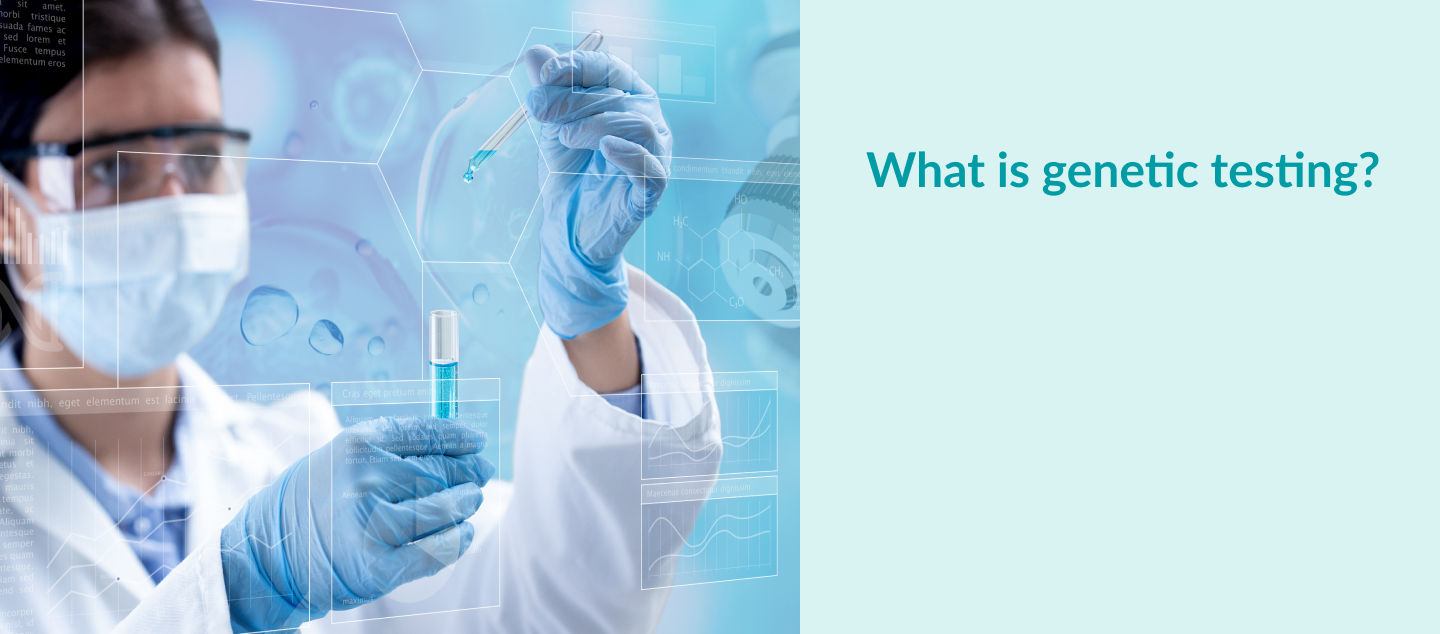
Genetic Testing
Genetic testing is a type of medical test that identifies changes (mutations) in chromosomes, genes, or proteins. The results of a genetic test can confirm or rule out a suspected genetic condition or help determine a person’s chance of developing or passing on a genetic disorder. A geneticist or genetic counselor can help by providing information about the pros and cons of the test and discussing the social and emotional aspects of testing.
Cancer Genetic Testing
There are two kinds of cancer genetic testing: germline testing and somatic testing.
- Germline testing is done on non-cancer cells. The test can tell whether or not a person is born with gene mutations (also known as germline mutations) that are known to increase the risk of developing cancers and other health problems. Germline mutations can sometimes be inherited from parents and may be passed down to children.
- Somatic testing is done on cancer cells (tumor testing). Somatic testing is usually done after a person has been diagnosed with cancer and looks for genetic mutations in tumor or cancer cells. Somatic mutations are not passed down from a parent but acquired during one’s life. They can help doctors learn more about the diagnosis and the prognosis of cancer, and find out if treatments are available for cancer with that specific mutation.
Genetic Testing for Hereditary Ovarian Cancer
Genetic testing for hereditary breast and ovarian cancer looks for mutations in the BRCA1 and BRCA2 genes. Your doctor might suggest testing using a multigene panel, which looks for mutations in several genes at the same time, including BRCA1 and BRCA2. If you are of Ashkenazi Jewish or Eastern European ancestry, your doctor might suggest testing for three specific BRCA1 and BRCA2 mutations, called founder mutations. These are the most common mutations in people of Ashkenazi Jewish or Eastern European ancestry.
It is worth noting that most ovarian cancer is not caused by inherited mutations, so genetic testing will not help most women with a family health history of ovarian cancer. Genetic testing will not identify the cause for some ovarian cancers, because the genes affected in these cancers are not yet known. Genetic counseling before genetic testing for hereditary breast and ovarian cancer is important to determine whether you and your family are likely enough to have a mutation that it is worth getting tested.
Sources:
1. Courtesy of the U.S. National Library of Medicine: What is Genetic Testing? https://ghr.nlm.nih.gov/primer/testing/genetictesting, accessed on August 17th, 2020.
2. Somatic and Germline Cancer Testing. Patient and Family Education, Seattle Children’s Hospital, PE2960, accessed on August 17th, 2020.
3. Origins and Causes, Ovarian Cancer Research Alliance: https://ocrahope.org/patients/about-ovarian-cancer/origins-and-causes/, accessed on August 17th, 2020.
4. Courtesy of the Centers of Disease Control and Prevention: Genetic Testing for Hereditary Breast and Ovarian Cancer, https://www.cdc.gov/genomics/disease/breast_ovarian_cancer/testing.htm, accessed on August 17th, 2020.
5. Courtesy of the U.S. National Library of Medicine: What is genetic testing? https://ghr.nlm.nih.gov/primer/testing/genetictesting, accessed on August 17th, 2020.
Additional Readings:
- MedlinePlus, Genetic testing and your cancer risk, https://medlineplus.gov/ency/patientinstructions/000842.htm

